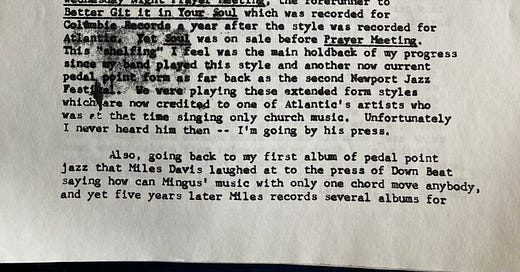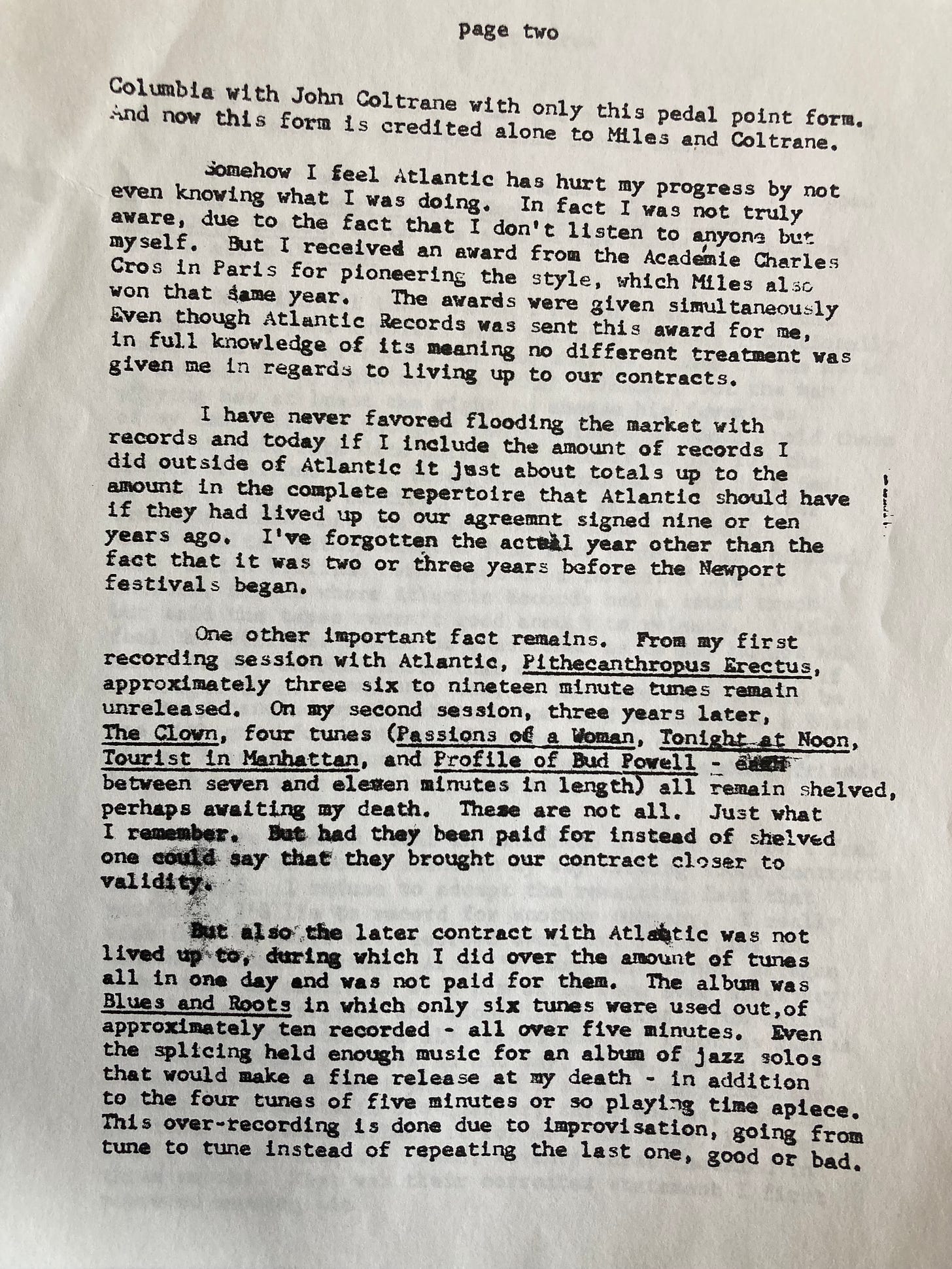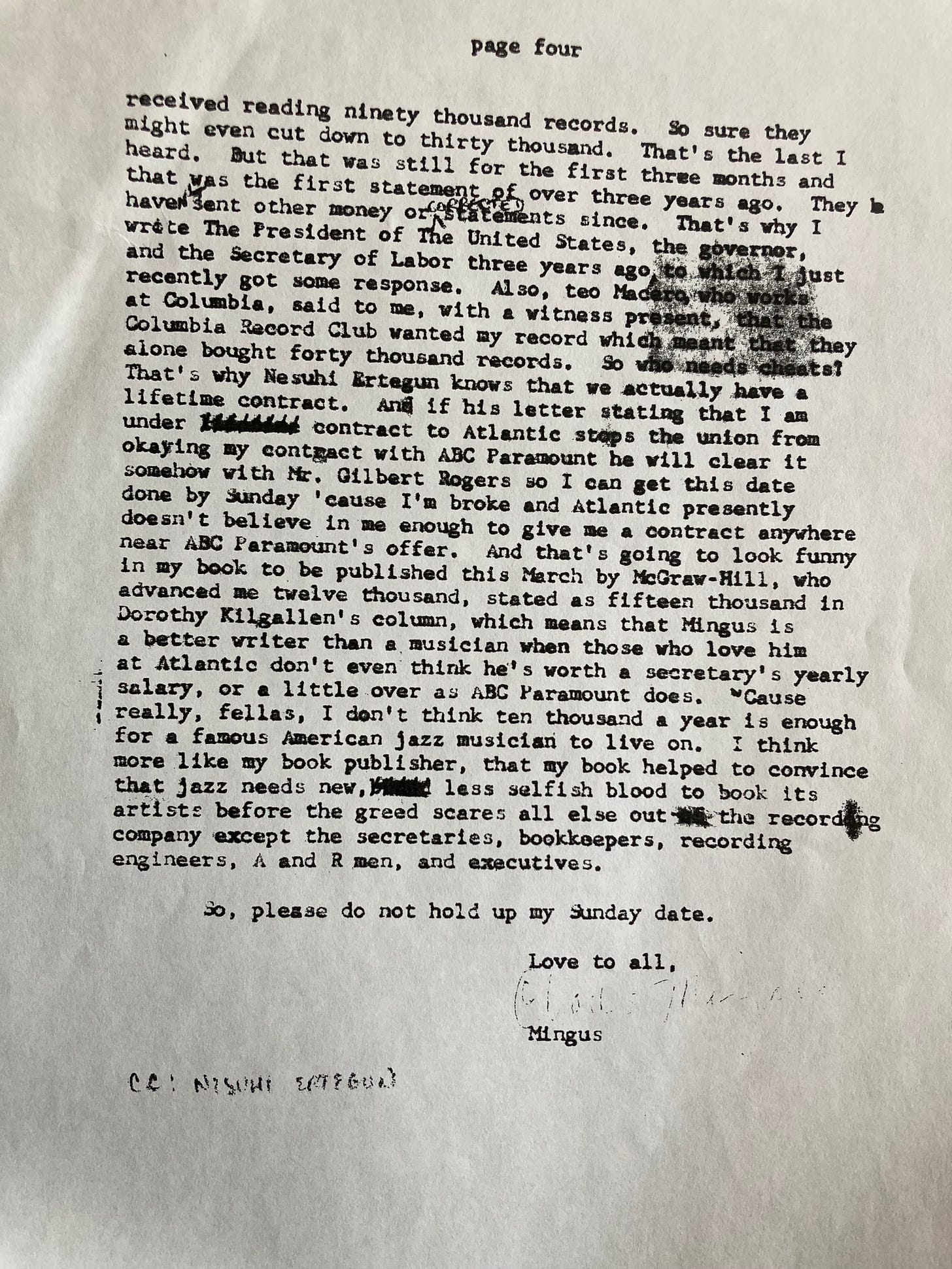Charles Mingus Writes A Letter About His Recordings, Part 1
Bassist and composer Charles Mingus (1922-1979) was a brilliant, witty, and difficult person. His letters are typically very rich, and layered with jokes and rambling tangents. This was even true when he wrote something for publication, although he had presumably edited it carefully beforehand. For an example, see his “Open Letter to Miles Davis” in Downbeat magazine, 1955.
Here is a long typed letter, never before shared anywhere, that he wrote in 1963 to the American Federation of Musicians (AFM), and cc’d to his producer at Atlantic Records, Nesuhi Ertegun. There are over 240 local branches of the AFM in the United States and Canada, and Local 802, now on West 48th Street in Manhattan, is the famous New York City flagship chapter. We musicians refer to the AFM as “the musicians’ union,” or “the union,” and to the local branch as “802.”
The letter is addressed to Gilbert “Gil” Rogers, who was the AFM president’s Assistant on Symphony Affairs. At that time there was no jazz department at the union (since 2007, the “jazz rep”—representative—has been Todd Weeks, my friend and former grad student). Maybe that’s why Mingus reached out to Rogers, even though the issue has nothing to do with a symphony orchestra. Besides, maybe he had met Rogers and felt comfortable approaching him. Judging from the letter, it seems that he may have had some previous interaction with him about this matter.
The reason he’s writing is that he’s under contract to Atlantic Records, but he wants permission to record for another company, ABC-Paramount (specifically Impulse! Records, which was then a subsidiary of ABC-Paramount). He has the permission of Ertegun at Atlantic, but he also needs permission of the union because his contract is under the supervision of both parties.
So, the letter could have been one paragraph. But in his typical fashion, he goes off on many tangents, all of which are interesting to us today. Mingus admits that he has an “unexplainable love or liking” for Atlantic Records producer Nesuhi Ertegun, which has made him put up with a situation that is not ideal. His complaint is that Atlantic has not been releasing as many of his recordings as his contract called for, and also not releasing them in a timely manner, and that means that he is making less money than he could have made. This also impacts the way his music is perceived, because the public doesn’t get to hear some of his innovations until after others have recorded similar pieces. These are the reasons that he feels compelled to record for other labels.
There’s a lot more here to “unpack,” but I’ll let you read it first:
Interesting stuff, yes?! In Part 2, I’ll explain the many references within the letter, to unreleased recordings, Teo Macero, Dorothy Kilgallen (I’ll show you what she wrote), and so on. Looking forward!
All the best,
Lewis






